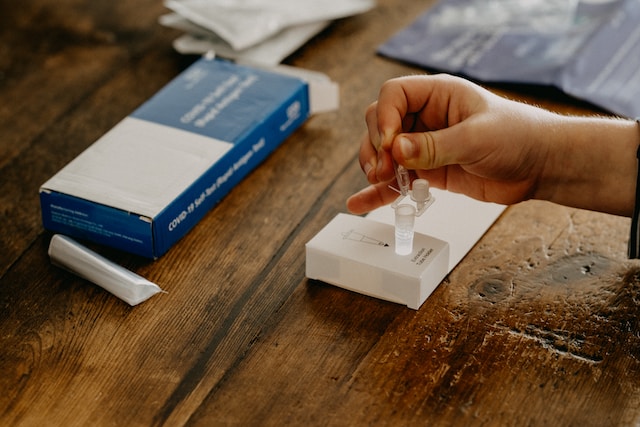The COVID-19 pandemic has brought the world to its knees and affected tens of millions of people. Health experts worldwide have been tirelessly developing efficient testing methods better to understand the virus’s impact on people’s health. In their research, antibody tests have emerged as one of the most promising technologies in understanding the virus and developing an effective response to the pandemic. While the availability of antibody tests is a positive development, knowing their role in understanding COVID immunity is essential. If we are going to accelerate vaccine development, improve our overall response and obtain accurate results, let’s dig deeper into the role of antibody tests in understanding COVID immunity.
How Antibody Tests Work
Antibody tests work by detecting the presence of specific antibodies in a patient’s blood sample. The immune system produces antibodies to battle a viral or bacterial infection. In the case of COVID-19, these antibodies can be detected in a patient’s blood a few days after the onset of the infection. There are two types – IgM and IgG. IgM antibodies are produced in the condition’s early stages, while IgG antibodies indicate a later-stage infection. Antibody covid tests can be done using a blood sample; the results are usually available within a few days.
What Antibody Tests Reveal
Antibody tests reveal if a person has been infected with the COVID-19 virus. Positive results show that the patient has been infected with the virus, while negative results mean that the patient has not been infected with the virus. While this is a promising result, scientists are still trying to understand how long this immunity lasts. Some studies have shown that the antibodies can last for several months, while others indicate that they may only last for a few weeks. The level of immunity varies from person to person, and more research is needed to understand the relationship between antibodies and immunity.
The Role of Antibody Tests in Vaccine Development
Antibody tests play a crucial role in vaccine development as well. Researchers use antibody tests to identify individuals who have developed a robust immune response to COVID-19. These individuals can be recruited for clinical trials to test the effectiveness of potential vaccines against the virus. In this way, antibody tests enable researchers to accelerate the development of vaccines and study their efficacy during clinical trials.
Public Health Implications of Antibody Tests
Antibody tests can also provide important insights into the spread of the virus within a community. By conducting antibody tests on a sample of the population, healthcare officials can estimate the prevalence of the virus in the community and identify those who have already been exposed to the virus. In turn, it can help officials develop more targeted containment measures and improve their overall response to the pandemic.
Availability of Antibody Tests
Antibody tests are available in the market, and people can purchase them online and offline. However, it is essential to note that not all antibody tests are created equal. Some tests are more accurate than others, and some may give false positives or negatives. Therefore, it is critical to select a test from a reputable vendor and seek guidance from your healthcare provider.
Conclusion
Antibody tests play a vital role in understanding COVID immunity. Although there are still many questions to be answered, the tests are essential in tracking the spread of the virus, identifying those who may be immune, and developing treatments and vaccines. As more and more people get tested, we’ll have a clearer picture of how the virus impacts our communities and how we can best protect ourselves. If you’re interested in purchasing an antibody test, consult your healthcare provider first. They can help you determine if it’s the right choice for you.
Read More:
How travel companies can adapt and succeed in the post covid landscape


